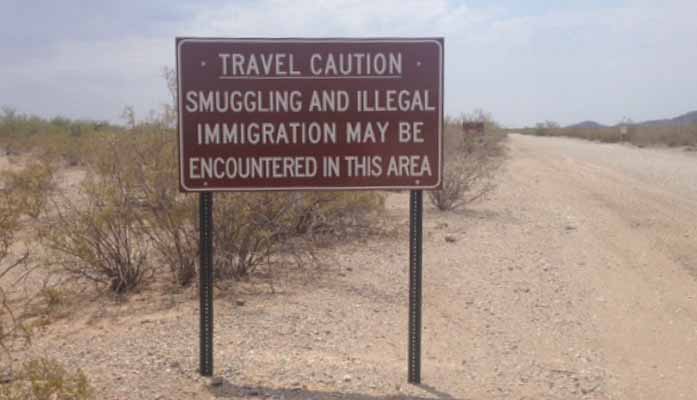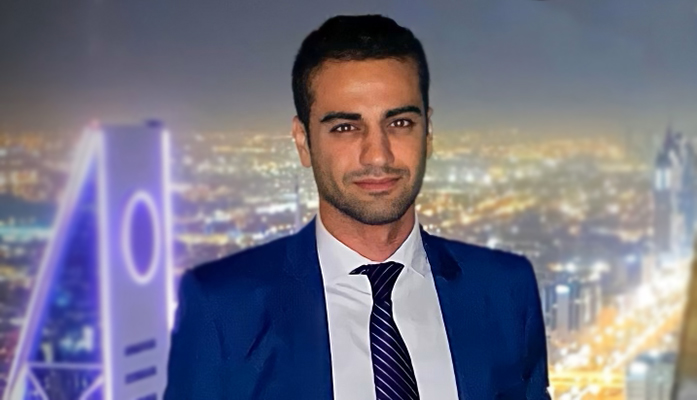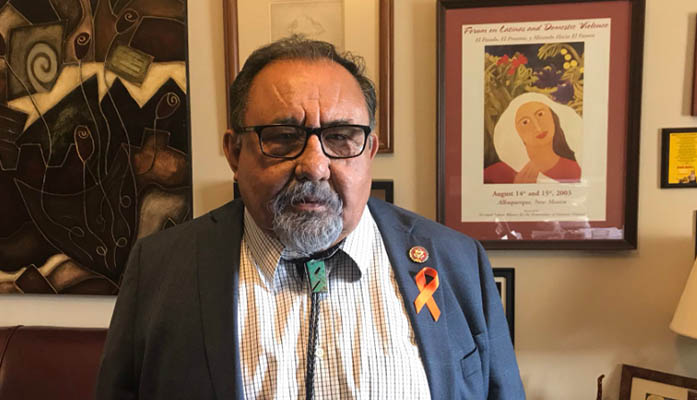
by Jonathan Eberle | Mar 17, 2025 | News
By Jonathan Eberle |
Arizona’s ongoing housing crisis is taking center stage as state lawmakers, led by House Majority Leader Michael Carbone, voice strong opposition to Governor Katie Hobbs’ water policies, accusing them of exacerbating the state’s housing shortage. In a statement released last week, Carbone applauded House Speaker Steve Montenegro for authorizing a lawsuit against the Arizona Department of Water Resources (ADWR) over its adoption of a controversial 33.3% groundwater tax. Carbone claims that this policy is driving up the cost of housing and ultimately harming Arizonans who are already grappling with soaring housing prices.
At the center of the dispute is a policy known as the housing moratorium, which has been criticized for preventing the development of large swathes of land that could otherwise be used to build affordable homes. According to Carbone and other critics, the moratorium was adopted illegally, and it has led to a situation where hundreds of thousands of acres of land remain undeveloped. This, in turn, limits the amount of available space for new homes, driving demand to already crowded urban areas and increasing housing costs.
Carbone explained that “water policy is land use policy, and land use policy is housing policy,” suggesting that the restrictions on land development, while related to water conservation, are having broader economic consequences.
As a result of the moratorium, many Arizonans are facing higher costs when it comes to purchasing new homes. The housing moratorium is expected to increase home prices by $19,600 to $23,700 per house. Additionally, the proposed 33.3% groundwater tax has been predicted to add an extra $5,100 to $7,900 to the cost of new homes. These measures have raised concerns about the affordability of housing, especially in a state already struggling with rapid population growth and a housing shortage.
The Arizona House of Representatives, alongside the Home Builders Association of Central Arizona (HBACA) and members of the Arizona Senate, have joined forces in a legal battle against the ADWR’s actions. The lawsuit seeks to halt the 33.3% groundwater tax, which lawmakers argue is not only illegal but also harmful to Arizona’s housing market. Carbone criticized the governor’s policies, stating that they are not about ensuring water security but rather a means of “government control.”
“The Governor wants to dictate where and how Arizona families live, limiting all future growth to cities and driving up home prices,” Carbone said. “Affordable housing is central to the American Dream, and we are committed to fighting these illegal policies that will only make the housing crisis worse.”
The legal battle focuses on the ADWR’s authority to implement such a tax and whether it complies with state law. Proponents of the lawsuit argue that homebuilders have long demonstrated a commitment to responsible water management, having replenished 100% of the groundwater they use annually since 1995. Therefore, they contend, penalizing the homebuilding industry with additional taxes is unfair and counterproductive.
Jonathan Eberle is a reporter for AZ Free News. You can send him news tips using this link.

by Jonathan Eberle | Mar 16, 2025 | News
By Jonathan Eberle |
On Monday, Arizona Senate Republicans made significant progress toward enhancing the state’s role in federal immigration efforts by passing three bills aimed at improving border security and protecting Arizona communities. The bills, all sponsored by Senator John Kavanagh (R-LD3), are designed to address the increasing strain on local detention facilities, provide critical support for law enforcement, and assist federal agencies in deporting criminal illegal aliens.
All three bills have passed the Arizona Senate and are now being sent to the House of Representatives for further consideration.
The first bill, SB 1294, Leasing Marana Prison to the U.S. Government, is designed to address overcrowding in detention centers and create more space for the federal government to house criminal illegal aliens. The bill mandates that the Arizona Department of Administration lease the Marana Prison—currently vacant—to the U.S. government for just $1 per year. The prison, located near the U.S.-Mexico border and several airports, would be an ideal location to detain criminal illegal aliens, according to Senator Kavanagh.
“This measure is a no-brainer. The federal government should have access to the empty Marana Prison to house these dangerous criminal illegal aliens so that Arizonans are protected from further threats,” Kavanagh said. “Detention centers are running at max capacity, and as a result, illegal aliens are being released back into communities.”
The bill also includes a provision that allows Arizona to terminate the lease if the state requires the prison for its own incarcerated individuals, ensuring flexibility in future use.
The second bill, SB 1299, Law Enforcement Personnel Grant Program, establishes a Law Enforcement Personnel Grant Program, which would provide $2 million from the state’s general fund to the Arizona Department of Public Safety (DPS). The program would reimburse local law enforcement agencies for the costs associated with immigration-related training. This measure aims to equip officers with the tools and knowledge necessary to handle immigration enforcement, improving public safety for Arizona residents.
“It’s our duty as lawmakers to support our law enforcement with resources to protect our citizens, and this bill does just that,” Kavanagh stated. “With additional training, we can ensure that our front-line officers are equipped for the job, protecting both themselves, and the people of this great state.”
The third bill, SB 1610, Requiring Detention Facilities to Share Inmate Information with ICE, mandates that county detention facilities provide personal identifying information and access to detainees upon request by U.S. Immigration and Customs Enforcement (ICE). This bill is designed to support federal deportation efforts by facilitating communication between local detention centers and ICE, enabling the federal agency to efficiently carry out removals of individuals with criminal records or immigration violations.
“Voters made it very clear in the last election – they are FED UP with the massive tsunami of people who have been entering this country illegally,” Kavanagh said. “With this bill, we are supporting the federal government’s deportation efforts by requiring detention facilities to supply inmate information to ICE.”
Senator Kavanagh emphasized the importance of standing in solidarity with the Trump administration’s efforts to curb illegal immigration and protect U.S. communities from individuals who have committed crimes.
Jonathan Eberle is a reporter for AZ Free News. You can send him news tips using this link.

by Staff Reporter | Mar 16, 2025 | News
By Staff Reporter |
Congressman Abe Hamadeh convinced U.S. House leadership to ban circulation of Chinese Communist Party (CCP) propaganda styled as a newspaper.
China Daily will no longer be distributed at the House, per a Tuesday statement from House Administration Chair, Rep. Bryan Steil, and Select Committee on the Chinese Communist Party Chair, Rep. John Moolenaar.
“We are pleased to announce that China Daily will no longer be circulated by National News to House offices,” said Steil and Moolenaar. “We took action to directly block the Chinese Communist Party from using the halls of the People’s House to spread its propaganda. We appreciate National News’s swift cooperation on this important issue.”
“Chinese propaganda has no place in the halls of Congress. In coming weeks, China Daily will no longer be circulated by National News to House offices,” stated Chairman Steil. “There is no room for foreign influence in the People’s House. I thank Rep. Hamadeh for bringing this issue to the Committee’s attention and I appreciate National News’s swift work on this matter.”
National News included China Daily within the daily bundle of major publications provided to congressional offices, unless a particular office opted out. Per the Committee on House Administration, National News will “wind down and cease distribution” of China Daily at the Capitol.
An end to the circulation of the CCP’s paper within the House was one of Hamadeh’s first priorities upon entering Congress. Hamadeh introduced a resolution to get rid of China Daily and all other CCP-controlled publications last month.
China Daily constitutes a “foreign influence campaign” per Hamadeh’s resolution.
“China Daily is registered as a foreign agent under the Foreign Agents Registration Act of 1938 and operates as a direct propaganda outlet of the Chinese Communist Party’s Publicity Department,” stated the resolution. “[T]he distribution of foreign propaganda materials within the House of Representatives undermines institutional integrity and enables malign foreign influence operations [and] the presence of Chinese Communist Party-controlled publications in official House facilities legitimizes foreign propaganda efforts[.]”
Hamadeh’s resolution didn’t restrict the private receipt or public research access of those publications by House members and employees, however.
China Daily is an English-language newspaper owned by the CCP’s Central Propaganda Department. It has been registered under the Foreign Agents Registration Act as a foreign agent since the 1980s.
The paper maintains branch offices for “China Daily USA” in New York City, New York; San Francisco, California; Los Angeles, California; Seattle, Washington; and Washington, D.C. It also sponsors an insert, China Watch, for distribution within other American newspapers, such as The New York Times, The Wall Street Journal, and The Washington Post.
The editor-in-chief and president of China Daily USA, Tao Ji, has spent his entire career with China Daily and another offshoot, China Daily United Europe (United Kingdom).
Although Hamadeh’s resolution has yet to be adopted, the congressman’s public remarks about his legislation and China Daily spurred action within House leadership.
Shortly after Hamadeh initially introduced his bill to ban China Daily, he declared in an interview with the Epoch Times the publication to be an attempt by an enemy of the U.S. to influence its governance.
“It’s propaganda by a foreign government that’s trying to influence the highest echelons of the United States government, and it’s unacceptable,” said Hamadeh.
AZ Free News is your #1 source for Arizona news and politics. You can send us news tips using this link.

by Jonathan Eberle | Mar 16, 2025 | Economy, News
By Jonathan Eberle |
Arizona lawmakers are facing mounting backlash over a proposed pay raise bill that would increase the salaries of state legislators by a significant margin. Senate Concurrent Resolution 1003, introduced in the Arizona State Senate, seeks to boost the base pay for Arizona legislators, raising concerns about the timing of the proposal and the growing burden on taxpayers in an already financially strained state.
The bill, which passed initial stages in the legislature, aims to increase the base salary of lawmakers from $24,000 to $48,000, a 100% increase. Additionally, it proposes an increase in per diem payments and other benefits. The bill’s sponsors argue that this pay increase is necessary to attract qualified candidates to public office as well as keeping up with inflation.
The bill’s sponsor, Senator John Kavanaugh, says that he’s not worried about potential pushback from Arizona voters. “I do not think those voters wanted their $24,000 raise diluted by inflation to about $11,000,” Kavanaugh said. He said this calculation was based on the buying power that figure had in 1998—the last time Arizona lawmakers received a pay raise.
However, critics of the bill argue that such a significant pay raise for lawmakers comes at a time when many Arizonans are struggling to make ends meet due to rising costs of living and a housing crisis that has left many families in financial hardship. The proposal has raised questions about whether elected officials are out of touch with the economic realities faced by their constituents.
The timing of the bill has led some to question the motivation behind it. Critics argue that lawmakers, many of whom already have full-time jobs outside of their legislative duties, should not be seeking a pay raise while so many Arizonans are still struggling financially. Others believe the pay raise is necessary to ensure current lawmakers can make ends meet.
Democrat Senator Eva Burch recently announced her resignation from the legislature, citing that she’s struggling to make ends meet and to find balance with her legislative work and her job as a healthcare provider. “I know that I am not the first, nor will be the last, good person to find themselves a casualty of legislative pay,” said Burch.
As SCR 1003 makes its way through the Arizona Legislature, the controversy surrounding the proposed pay raise for state lawmakers is unlikely to subside anytime soon. With many Arizonans still feeling the financial pressure from rising living costs, the bill has become a flashpoint in the ongoing debate over government priorities and fiscal responsibility.
Jonathan Eberle is a reporter for AZ Free News. You can send him news tips using this link.

by Staff Reporter | Mar 15, 2025 | News
By Staff Reporter |
Democratic Congressman Raúl Grijalva passed away from complications with cancer on Thursday morning.
Grijalva was 77 years old at the time of his passing. The representative took up his congressional seat in 2003. This term was promised to be Grijalva’s last, per the congressman.
It appears staff didn’t get the memo about Grijalva’s passing. Hours before Grijalva’s office issued an official statement on X about his passing, Grijalva’s staff published a post criticizing the Trump administration.
The last post on Grijalva’s account prior to the announcement of his passing concerned the mass layoffs essentially halving the Department of Education (ED) workforce. Grijalva’s staff criticized President Donald Trump’s ED cleanup as “reckless,” “selfish,” and “illegal,” claiming students’ aid programs, civil rights protections, and disability supports were jeopardized.
Grijalva’s staff claimed, specifically, the ED firings would deprive 26 million students of critical funding, 12 million students of career and technical education resources, 10 million low-income students of higher education assistance, and 7.5 million Individualized Education Plan (IEP) students of special education services.
These estimates were pulled directly from the American Federation of Teachers (AFT), the affiliated international union of the American Federation of Labor and Congress of Industrial Organization (AFL-CIO). The AFT consists of over 1.3 million members and 3,000 local affiliates nationwide. However, these estimates were not based on ED layoffs but rather a complete abolition of ED — something that has not yet taken place.
The posting raises concerns over who was representing Grijalva’s constituents during his last few years in office after his announced lung cancer diagnosis in 2023 — especially due to the fact Grijalva missed a vast majority of major votes since then.
Grijalva stepped down as ranking member of the Natural Resources Democrats in December.
Not only did Grijalva step down from key leadership positions — he remained absent from Congress for most of this last legislative session and was absent for this session with the exception of the first day (69 out of 71 roll call votes, or about 97 percent of votes). Grijalva didn’t cast a vote on legislation this session, save for his vote for Democratic Rep. Hakeem Jeffries for House Speaker at the start.
Grijalva previously defended his lack of voting in remarks to the press because “Republicans are in charge” and his vote wouldn’t matter anyway.
“They’re inconsequential because the Republicans are in charge and it’s the worst performing Congress in decades, if not a hundred years,” said Grijalva.
Although Grijalva’s health was in decline amid his ongoing cancer treatments last summer, Grijalva was among the early few Democratic leaders to call on former President Joe Biden to step down from his reelection bid last year. Grijalva said it was a duty for those unfit to serve to preserve the seat for their party by dropping out of the race.
“If he’s the candidate, I’m going to support him, but I think that this is an opportunity to look elsewhere,” said Grijalva to the press. “What he needs to do is shoulder the responsibility for keeping that seat — and part of that responsibility is to get out of the race.”
These remarks to the media were reported at the time to be a sharp and inexplicable departure from Grijalva’s messaging on social media supporting Biden and criticizing naysayers of Biden’s candidacy just the week prior.
In light of the fact that Grijalva’s staff posted on X under his name hours after he died on Thursday, it seems Grijalva’s staff may have been more in charge of the office for longer than most constituents were aware.
Following the passing of Grijalva, Governor Katie Hobbs issued a proclamation calling for a special primary election to fill the vacancy for Congressional District 7 on Tuesday, July 15, 2025, and a special general election on Tuesday, September 23, 2025.
Federal law (2 U.S.C. § 8) provides that special elections to fill vacancies in the U.S. House of Representatives are held under applicable state laws.
Under A.R.S. § 16-222(B), if the next regular general election is not to be held within six months from the date of the occurrence of the vacancy, the Governor shall call a special primary election to be held 120 to 133 days after the vacancy and a special general election to be held 70 to 80 days after the special primary election.
AZ Free News is your #1 source for Arizona news and politics. You can send us news tips using this link.

by Staff Reporter | Mar 15, 2025 | News
By Staff Reporter |
A federal judge ordered the Department of Government Efficiency (DOGE) to turn over records in Arizona’s case against the Trump administration.
U.S. District Judge Tanya Chutkan, an Obama appointee, issued the order on Wednesday in State of New Mexico v. Elon Musk for the United States District Court for the District of Columbia. Arizona joined 13 other Democratic attorneys general in challenging DOGE; Attorney General Kris Mayes was the one to file the motion for discovery (re:45) that prompted Chutkan’s order.
“The American people deserve transparency and we will get it,” said Mayes of the order.
Chutkin exempted President Donald Trump from the discovery requests, and limited records to only those information and materials regarding agencies, employees, contracts, grants, federal funding, legal agreements, databases or data management systems pertaining to the plaintiff states (in addition to Arizona, this consists of California, Connecticut, Hawaii, Maryland, Massachusetts, Michigan, Minnesota, Nevada, New Mexico, Oregon, Rhode Island, Vermont, and Washington).
The requested records:
- All DOGE and DOGE Temporary Organization planning, implementation, and operational documents, and operational documents concerning: eliminating or reducing the size of federal agencies; terminating employment of federal employees or placing such employees on leave; or cancelling, freezing, or pausing federal contracts, grants, or other federal funding;
- All DOGE and DOGE Temporary Organization planning, implementation, and operational documents regarding obtaining access, using, or making changes to federal databases or data management systems;
- All documents containing lists, charts, or summaries that DOGE personnel or Musk have created, compiled, or edited reflecting the planned or completed cancellation of federal contracts, grants, or other legal agreements;
- All documents containing lists, charts, or summaries that DOGE personnel or Musk have created, compiled, or edited regarding the termination of federal employment, placement of federal personnel on leave, or regarding interviews of federal personnel for the purpose of making an assessment about whether to put them on leave or terminate their employment.
- All interagency agreements, memoranda of understanding, memoranda of action, or other similar documents between: DOGE, the DOGE Temporary Organization, one or more DOGE Teams, and/or DOGE personnel, and any federal agency, component, office and/or other federal organization;
- Identification of every individual who has served as DOGE Administrator or as the functional head of DOGE, including in an acting capacity, since January 20, 2025, and the dates served in that capacity. As part of this response, identify all individuals with authority to hire or terminate employment of DOGE personnel since January 20, 2025;
- Identification of every individual serving as DOGE personnel. For each person, identify their title; whether they are part of a DOGE Team at an agency, and if so, what agency; all individuals to whom they directly report; and (4) who hired them;
- Identification of all federal agencies for which DOGE personnel or Musk: cancelled or directed the cancellation of federal contracts, grants, or other similar instruments, or plan to do so between now and June 1, 2025, or terminated employment or placed on leave, or directed the termination of employment or placement on leave, of federal employees, or plan to do so between now and June 1, 2025. For each agency identified, identify each contract, grant, or other agreement cancelled and the number of employees whose employment was terminated or who were placed on leave pursuant to the direction of DOGE personnel or Musk, and the components of the agencies at which those employees who were terminated or placed on leave worked;
- Identification of all federal agencies for which DOGE personnel or Musk: directed the cancellation of federal contracts, grants, or other similar instruments, or plan to do so between now and June 1, 2025, or directed termination of employment or placement on leave of federal employees or plan to do so between now and June 1, 2025. For each agency identified, identify each contract, grant, or other agreement cancelled and the number of employees whose employment was terminated or who were placed on leave pursuant to the direction of DOGE personnel or Musk, and the components of the agencies at which those employees who were terminated or placed on leave worked;
- Identification of the databases and data management systems at federal agencies to which DOGE personnel have obtained access or plan to obtain access between now and June 1, 2025. For each database and data management system identified, summarize the training received and security measures taken by DOGE personnel prior to accessing each system; DOGE’s purpose in accessing each system; the actions taken by DOGE personnel after accessing each system; and whether any data from the system has been transmitted outside the agency.
Chutkan ordered the release of the records within 21 days of the order (April 2, 2025).
AZ Free News is your #1 source for Arizona news and politics. You can send us news tips using this link.






